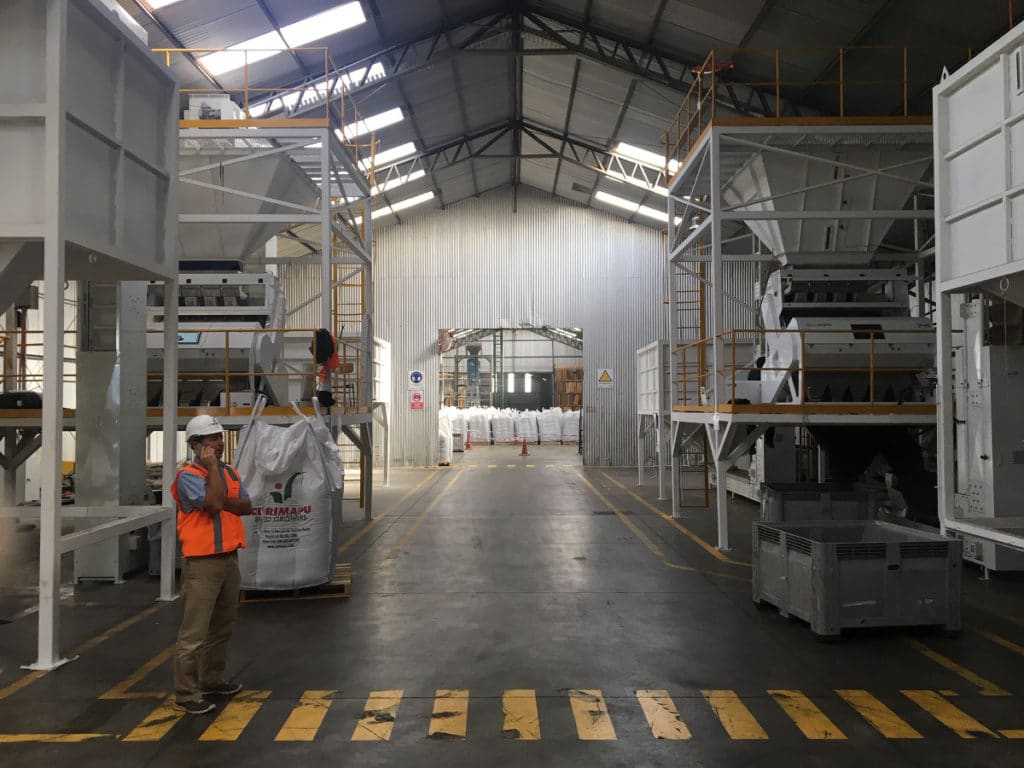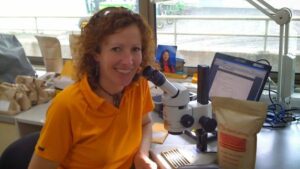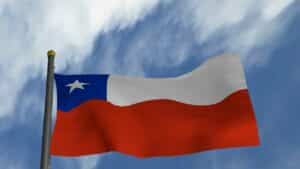We explore how the Canadian seed industry is stick-handling COVID in its South American business activities this winter, and what lies ahead.
Every year, seed companies from Canada, the U.S. and Europe run counter-season trials and production in Chile. As we all know, 2020 hasn’t been like other years. Despite the challenges of COVID-19, business activities are proceeding as closely to normal as possible.
It was back in 2008 that Nisku, Alta.-based 20/20 Seed Labs first established a lab in Chile. President Sarah Foster moved it to various locations but has now settled into a permanent location at Curimapu Export in Chillan. Here, Foster and several staff members conduct tests each year for purity, germination, moisture, green seed and 1,000-kernel weight, but for other tests, seed must be shipped to Nisku. Expedited shipments (and the faster results they provide) are important to 20/20 clients, and Foster has used an “excellent” Chilean shipping company for years. She will rely on it again this season, when she and two employees will hopefully be able to travel as usual to Chile.
As of press time, the Chilean border was open for travel, but entry, exit and transit restrictions and requirements are subject to change.
“Canadians are usually permitted to get the required visa at the airport, but we’ve got people in the government making sure we will be able to get visas or some kind of permit to be able to stay and do testing. We really are a critical service there. We also have to see the local police for a permit to move from town to town,” Foster said.
“Eduardo de la Sotta, general manager at Curimapu Export, is helping us and we have the Ministry of Agriculture also assisting with our papers. Kimiko Epp, Cristina Alucena Santiago and staff at HyTech Production here in Canada are also a huge help. It’s a group effort for sure.”
While Foster believes everything will likely go well, she is concerned about getting back to Canada from Chile should another major global lockdown be declared. “We’ll book our flight ahead of time and hope for the best,” she says. “In the spring [of 2020], it took five flights and 52 hours to get back to Canada and it was pretty stressful.”
Smooth Sailing
De la Sotta sent a report to Germination in late 2020. Everything at that point was proceeding normally. “The seed import is almost finished, most of the fields are planted, and everything was done properly,” he said.
He explained that even with the border open, those who need to come to Chile for business will have to apply for special permission ahead of time, providing reason for the visit and a set date of entry. Staff at Chilean companies and ANPROS (the Chilean Seed Association) are available to help.
De la Sotta adds that because the Chilean government has declared agricultural companies to be of strategic importance, even when a city has been put in lockdown, all those involved in related activities such as seed production can move within and in/out of a city with their permission and identification.
To faciliate business as the pandemic goes on, Curimapu is providing field updates through a new online platform that it began to develop last March.
Customers can log in and check on pictures and videos of each field taken at the ground level and with a drone.
“Besides this, we also send a weekly report of each field with all the information and pictures,” explains de la Sotta. “Last season, we had started a pilot project and this season we are also running all of our fields with a satellite monitoring platform. In this way our farmers, field staff and customers can check by themselves the vigour index of each field during all seasons, all developmental stages, etc. We have also improved our information system in order to give our customers full transparency and the most updated information.”

Travelling via the ‘Milk Run’
Like 20/20 Seed Labs, HyTech Production near Lethbridge, Alta., has had operations in Chile for years, in this case a subsidiary business, since 2006. Kevin McNaughton, HyTech’s production manager, says that in a normal year, some Canadian staff generally arrive in September and stay until mid-February.
Relating to their roughly 30 Chilean employees, McNaughton explained in late October that “Chile has a very high infection rate, and strict lockdowns are still in place. Our employees carry ‘passports’ that show they are essential workers. This allows them to travel throughout our production regions, but it’s necessary to show your paperwork at multiple checkpoints. This really slows things down.”
Like most firms who do counter-season production in Chile, HyTech ships seed to Chile in late summer for planting and back to Canada after harvest in February. However, this summer air cargo space was, not surprisingly, hard to find. While McNaughton explains that “we ended up finding a solution that was more straightforward than what we thought it would be,” straightforward is a word that would never be applied to the outcome under normal circumstances.
Indeed, HyTech’s seed was shipped to Chile this summer on “milk run” flights that first went to Europe and then on to Argentina and still other countries before arriving in Chile. In late October, the HyTech team was already looking to book container space for February 2021, making other plans as they can, hoping for the best.
Like Curimapu Export, HyTech has customers who normally like to visit Chile and see firsthand how their crops are doing.
“At this point, we’ve had our staff in Chile take some videos of the newly-planted fields and we’re working on getting some drone footage,” McNaughton reported. “Our customers trust us, but they value seeing the fields for themselves. In the future, once travel is back to normal, I think our customers will want to resume trips to Chile. Ag people always like to have their boots on the ground. We will have to see how much value we get from drone and satellite imagery as the season progresses. It’s also nice for them and some of our staff to escape the Canadian winter and enjoy a little bit of the Chilean summer.”
McNaughton says that with drone and possibly satellite imagery, with internet bandwidth growing and allowing longer videos to be shared, HyTech may re-think how it operates in Chile in the future. “A lot of that is because we have trusted, experienced employees,” McNaughton says. “However, there will never be a substitute for physically being in the field.”
Timely Paperwork
Mario Schindler, executive director at ANPROS, stresses that as COVID-19 has delaying logistics all over the world, “as an association, we have been transmitting the concept that everything must be done more in advance than usual. Sending the seed as soon as possible to Chile is one of the main challenges, as well as all the planning must be done. We have been working with our authorities in order to implement different actions for speeding up every process regarding seed movement, such as a joint working group that’s monitoring every single potential problem.”
ANPROS and a joint working group it formed with Chile’s ag ministry (ANPROS-SAG) are in constant communication with customs authorities, for example.
ANPROS has submitted inquiries regarding travel restrictions and how the seed community can deal with these and has been working on making it possible for required personnel to be able to enter the country. ANPROS is also working with authorities to digitize the paperwork related to seed movement for seed certification and phytosanitary certification. Chile already has the e-Phyto (electronic phytosanitary certificate) system in place with many countries, including the U.S., EU countries and Argentina; Schindler notes that “we have had some meetings with the Canadian Seed Trade Association (CSTA) regarding this matter, and e-Phyto with Canada is already being addressed with Canadian authorities.
Nicol√°s Sahli, CEO at Chilean agricultural firm CIS Agro, says ANPROS has done “a great job” coordinating with customs, SAG and other Chilean authorities to expedite the movements of seed and moving to electronic documentation continues. His advice to his Canadian counterparts echoes that of Schindler.
“Act in advance,” Sahli says. “Plan more and be rigorous with documentation to avoid [mistakes].”












